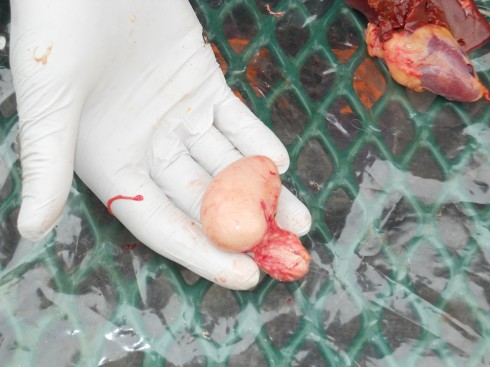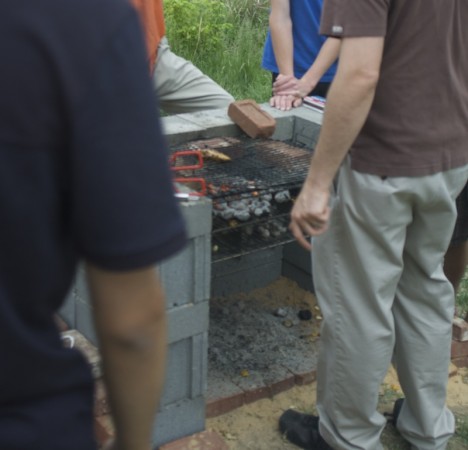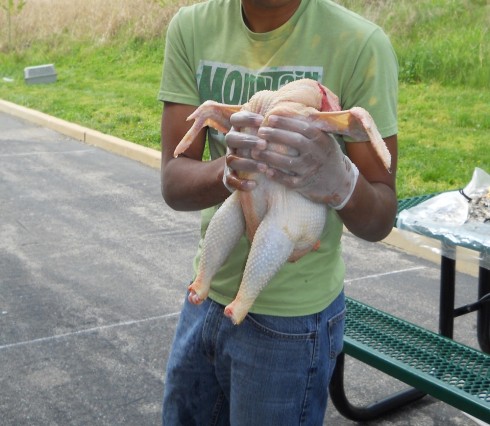We successfully harvested and processed three chickens during last week’s interim. It was my first time going through the entire process, but fortunately we had a very experienced guide in Dr. Samsone who also happens to be a vet.
The interim focused on where food comes from (students also saw the documentary “King Corn”), and the cleaning of the chickens was tied into our Biology students’ study of anatomy (I’d done fish and squid before). Unfortunately, I was unable to find someone who knew how to read the entrails so we could tie the process into history and language arts as well.

When we were done with the processing and analysis, Mr. Elder cooked the chickens on our brand new grill (which worked quite well he says). The chickens were free-range (donated by Ms. Eisenberger), but a little on the old side, at about 7 months old; the chickens you buy at the grocery are somewhere around 2 months old.
Dr. Samsone recommended that next time we raise the chickens ourselves from chicks, which I’d love to try, but I suspect would run into some serious resistance from the students. We’d only had the chickens we harvested for five minutes before they’d all been given names. Raising chickens from chicks would bring a whole new level of anthropomorphizing.

References
Being new to the chickens, I spent a bit of time researching how it is done.
Ken Bolte, from the Franklin County Extension of the University of Missouri, recommended the University of Minnesota’s Extension site on Home Processing of Poultry (the page on evisceration provided an excellent guide), as well as Oklahoma State’s much briefer guide (pdf).
Dr. Samsone recommended the series of videos from the Featherman Equipment Company. Videos are particularly useful for novices like myself.
Herrick Kimball’s excellent How to Butcher a Chicken is also a great reference.
